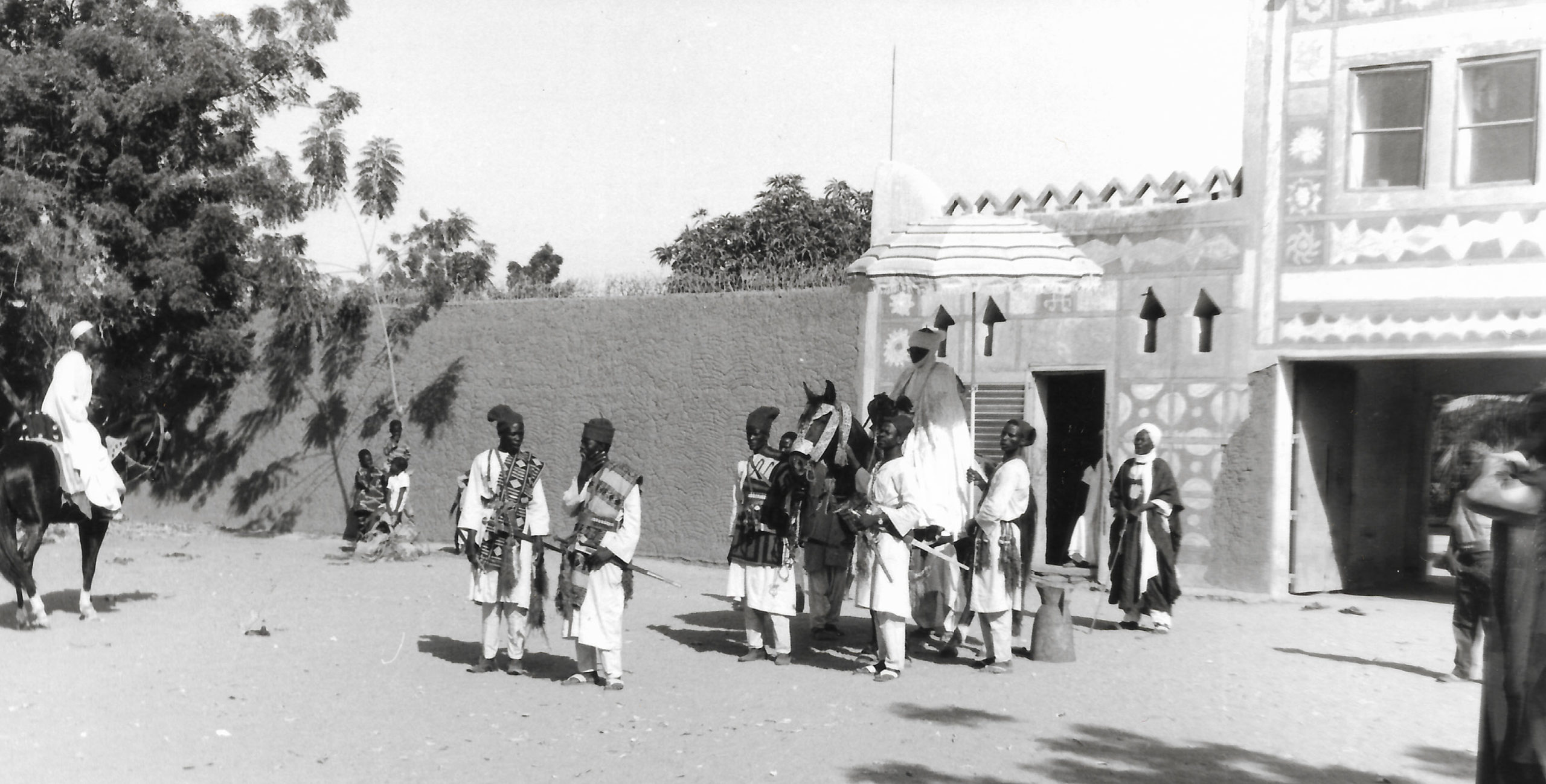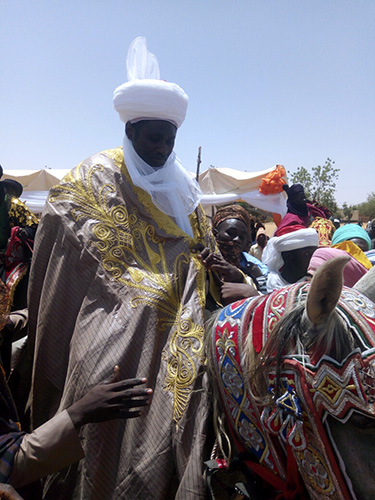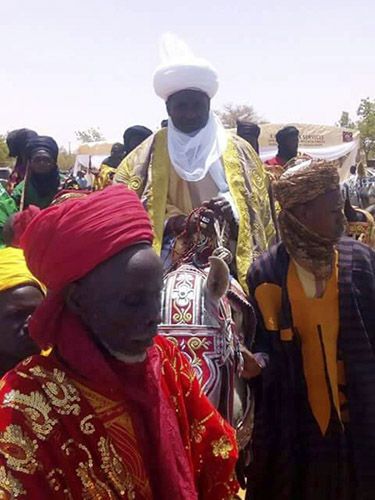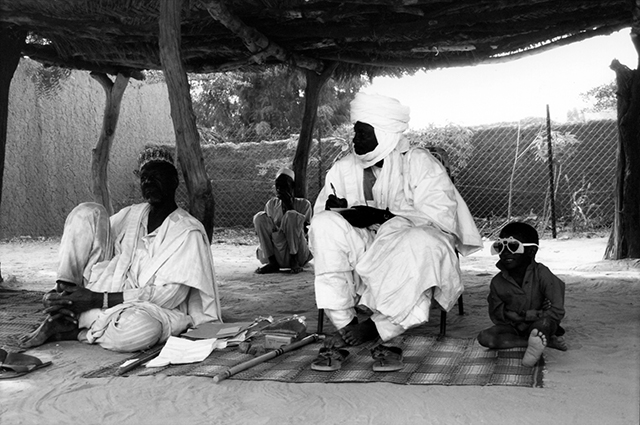
FIRST STEPS
THESIS

My thesis, entitled “A colonial aristocracy. History and political change in Hausa country, Niger” [1980] focused on the so-called ” traditional ” chiefdoms. I questioned the dualism between tradition and modernity. It was a well-trodden aporia that prevented us from seeing the continuities of politics, from the pre-colonial slave wars to the contemporary state. The colourful enthronements readily attributed to long traditions were in fact the result of power plays between lineages of princely origin in the same political network: traditional, state and commercial.
The historical development of politics in this country proved me right. The enthronements of canton chiefs now bring together senior representatives of the central administration and many notables: this ritual, which was once of very local importance, has become the manifestation of the contemporary success of a princely lineage.
In 2018, forty years later, Samna Aboubacar Marafa, son of the Samna I knew well, held a grand celebration for his enthronement, attended by political elites from beyond the borders of the country, including Mohamed Bazoum, Minister of the Interior and now President of the Republic of Niger.


Enthronement of Samna Aboubakar Marafa. 5 May 2018
Low-resolution photos provided by his brothers ©famille Marafa
Like a wedding, this ceremony lasts three days (formerly seven), during which the griots sing at the top of their voices, mountains of food are distributed and large numbers of animals are slaughtered. Ango, the suitor, is married to kasa, the land or country, represented by a young virgin who is physically present. On the last day, when ango comes out into the light, united with kasa, he can don the turban of the sarauta, sovereignty; a turban shared by all the “occupant-claimants” of a political office, however small. These also begin with an enthronement based on the same model of the wedding.
WARS, SLAVERY, SICKNESS: MAJOR TOPICS
With the William Ponty school for the first colonial managers, the sons of slaves or poor farmers were able to climb the hierarchy. Their rise was by default, due to the mistrust of the noble patriarchs towards white people. They preferred to send their slaves or servants instead of their own sons. But this did not erase the servile origins that were passed down from generation to generation like a stain.
The subject was addressed by Claude Meillassoux, who launched a two-year seminar at the EHESS, which was highly attended and led to the publication of a collective work. This was followed by another theme, war, which also brought together a large number of researchers and resulted in the publication of a book.
Marc Augé and Jean Bazin took up the baton, creating new forums for interdisciplinary emulation, where we enjoyed getting together. At the end of the session, the ritual question “Anyone coming for a drink?” hardly needed answering; the bistro was as important as the rest.

Sarki Samna Marafa, in the morning
I decided to settle in the canton of Tibiri on the Nigerian border. From there I would travel about. Chief Marafa had just been enthroned as Samna. Prior to that, he was a motorcycle policeman in town. I liked his background. He welcomed me very kindly. I later went on to make two films in this chiefdom Les Temps du pouvoir (1983) and Contes et Décomptes de la cour with his wives in the harem (1993).
For the time being, I was immersed in the oral tradition, which dealt with history in such a way that the speakers were always the descendants of those who had dominated. Never the subjugated! The stories were filled with heroes armed with magic, venerated warhorses and fantastic exploits in which bravery was interwoven with ritual cannibalism.
I supplement this body of knowledge with trips to the colonial archives, and learned Hausa all the more quickly because I enjoyed entering this highly visual world which was the basis of my doctorate, my first film and my first ethnographic writings.